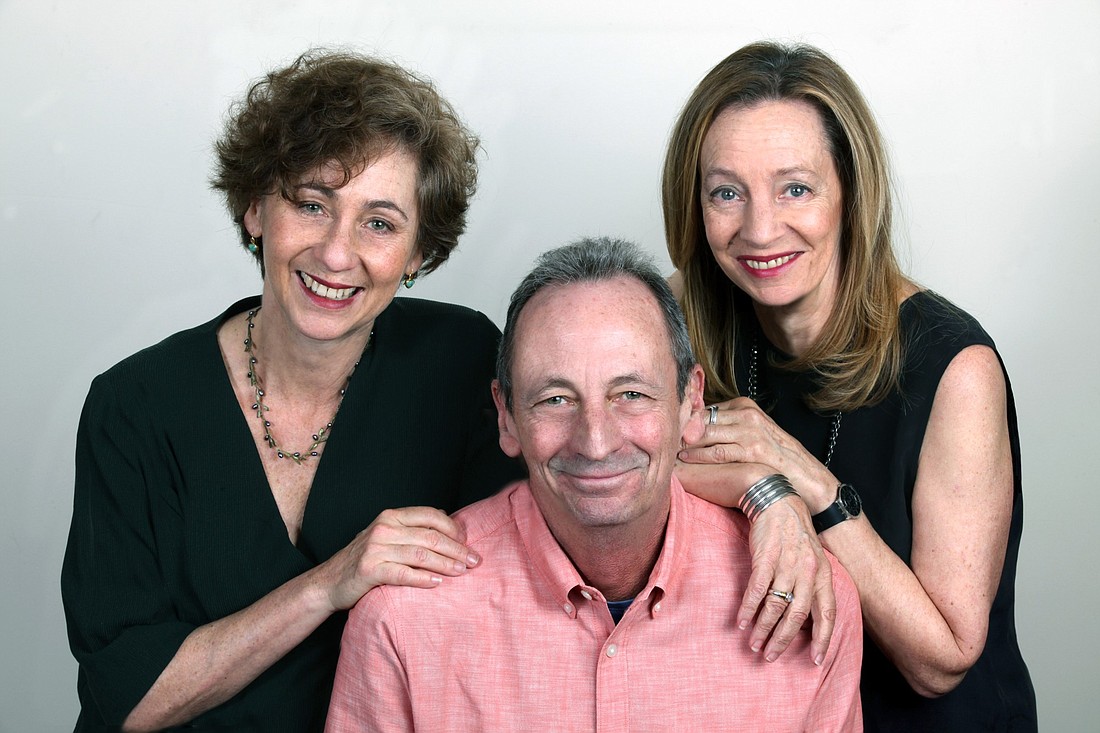- November 26, 2024
-
-
Loading

Loading

Leonard Bernstein was a prolific 20th century composer and educator who bridged the spheres of popular and classical music. His impact is still felt around the world today.
This year marks Bernstein’s 100th birthday, and a worldwide party seems only right. The global celebration spans 2,500 events on six continents.
In our area, three of Bernstein’s children will share stories and memories of their legendary father. Their conversation will take place at two locations March 19 as part of Sarasota Institute of Lifetime Learning’s popular “Music Mondays” series. We were lucky to engage Jamie Bernstein in a phone conversation ahead of time. We caught up with her during her recent engagement at the National Civil Rights Museum in Memphis, Tenn.
That’s correct!
“I will not be afraid of death and bane,” right?
Well, that was my father’s gift. Not only was he a born teacher, he was a compulsive teacher. The world was endlessly fascinating to him — and teaching was his way of communicating his excitement. If something excited him, he’d have to share it, and that’s what made him such a good teacher. Whether he was rehearsing an orchestra, sharing his favorite Jewish joke or reciting Lewis Carroll, it was essentially his way of grabbing you by the sleeve to say, “Listen to this! This is great and I have to share it with you!”
Yes, but also learning. For him, teaching and learning were inseparable. His curiosity was so strong that, as soon as he learned something, he immediately had to share it. As a teacher he was constantly learning and as a student he was constantly teaching. It was one continuous cycle.
It’s old school but true school.
As you probably know, I travel the world talking to kids about music. That’s how I engage young people. Interestingly, all three Bernstein siblings are all teaching in our own ways. That apple didn’t fall far from the tree. My sister, Nina, teaches healthy eating to high school kids in tough neighborhoods. And my brother started an entire educational model based on our dad’s theories of education. It’s called “artful learning,” and it’s used in many schools across the United States.
Well, it’s more than putting the arts in the schools. It infuses creativity across the entire curriculum. Everything revolves around a single focus—a masterwork. This could be anything from Beethoven’s “Ode to Joy,” to the Periodic Table of Elements, to the Declaration of Independence. After choosing a masterwork, the whole school gets involved in a creative investigation. Students in every class ask the big questions about the masterwork. They all get engaged and retain the information. Students love it; teachers love it; parents love it. Artful learning really brings learning to life.
We’ll share stories, insights and memories of our wonderful father, of course. But don’t expect high seriousness and great solemnity. I think the audience should be very amused to see us all together. We’re extremely close and we get very silly when we’re together. I think they’ll experience the closeness of our family—and get a sense of our father’s influence and presence through us.
Of course there’s competition! We play scrabble and other word games, and a lot of tennis. That’s where we express ourselves competitively. It’s all in the context of tremendous affection and amusement.
What’s my favorite Leonard Bernstein composition?
It’s all right. (laughs) I get asked that question all the time — as do my brother and sister. We’ve all realized that our answers constantly change, depending on what we’ve heard most recently. So my current favorite is my father’s Symphony No. 3 Kaddish. I happen to be narrating it here in Memphis, so that’s what I’m absorbed with this week. Next week it might be something else.
Well, you might think he was taking a nap. (laughs) He’d lie on the couch with his eyes closed. And it would look like he was just snoozing, but actually he was composing in his head. After he hatched an idea, he’d go to the piano, work it out, and then start writing it down.
Yes, it’s true. Sam Bernstein wanted his eldest son to inherit the hair and beauty supply business that he’d gone to such incredible pains to create. It was the classic immigrant success story! At the age of 17, Sam Bernstein escaped the Russian pogroms and came over to America without a coin in his pocket. Through incredible toil and persistence, he managed to build himself a thriving business in Boston. By the 1920s and ’30s, he was a thriving businessman. He was able to get his whole family through the Great Depression because he owned the regional franchise of Frederick’s permanent wave machine. (Even during the Depression, women felt entitled to a hairdo.) My grandfather was so proud that he’d built a successful business—and especially proud that he could pass it along to Leonard. But Leonard, of course, wanted to be a musician. As the famous story goes, my father had his triumphant, Cinderella-like debut with the New York Philharmonic …
Yes, exactly. And my father had to conduct at the last minute; the concert was
broadcast nationally and he became an overnight sensation. Afterwards, a
journalist confronted my grandfather and asked him, “Is it true that you wouldn’t
pay for your son's piano lessons because you didn’t want to encourage him to be
a musician?” And my grandfather famously replied, “Well, how was I supposed to
know he’d turn out to be Leonard Bernstein?
Yes. But, if you think about it, who else could he be?